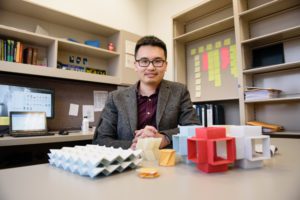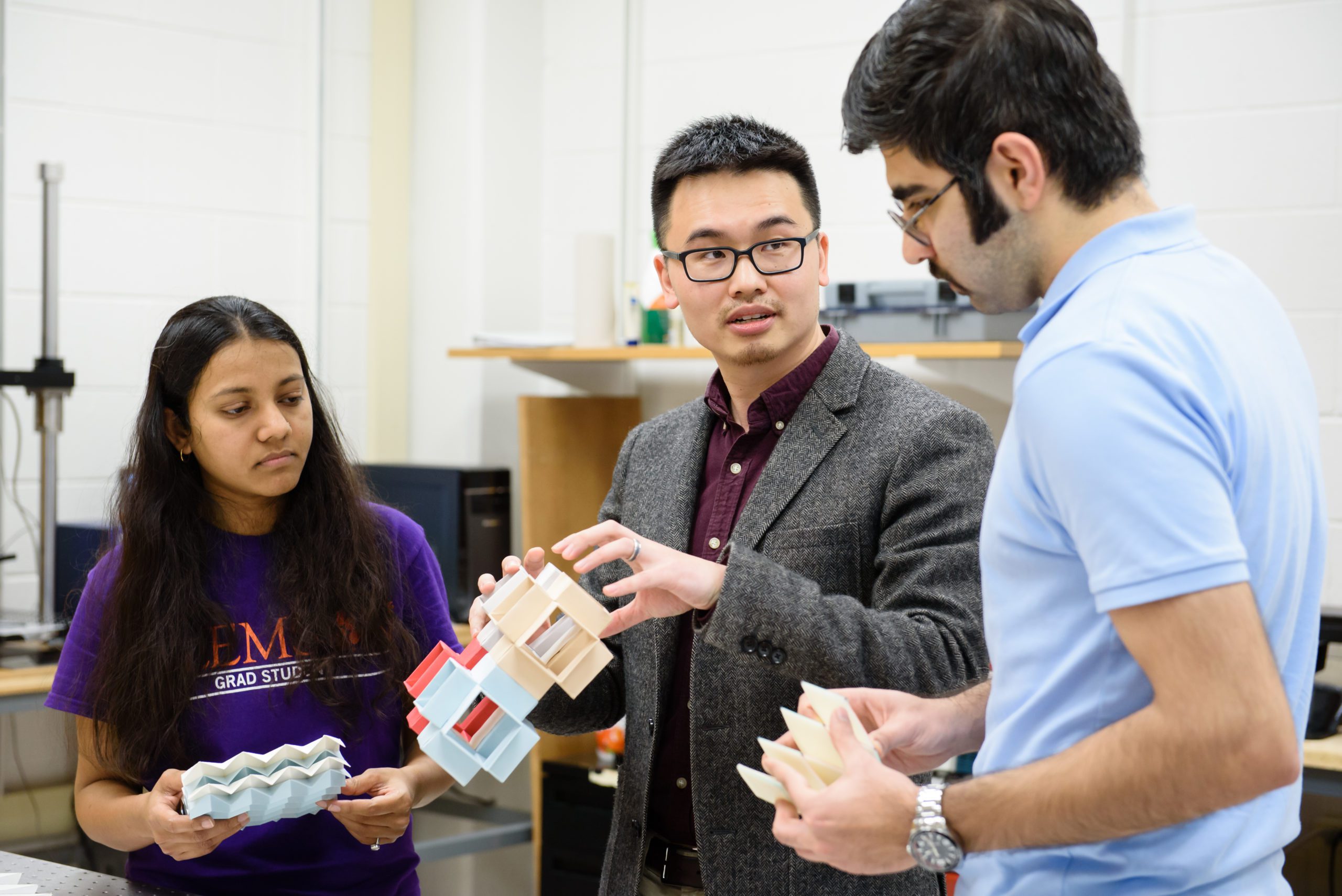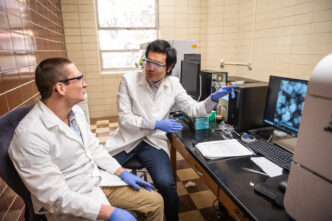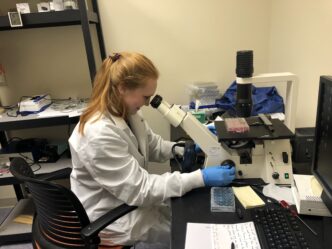A Clemson University mechanical engineer who is researching how origami could be used to make better buildings and robots is winning an award that recognizes his contributions to the field of adaptive structures and material systems.
Suyi Li, an assistant professor of mechanical engineering, is this year’s recipient of the Gary Anderson Early Achievement Award from the Aerospace Division of the American Society of Mechanical Engineers.

“It’s a nice surprise,” Li said. “It’s also humbling to see the senior members of the committee recognize my research and affirm I’ve done a good job in adaptive structures. I would like to thank my nominators and all who have supported me throughout my career.”
Many standard structures, such as car and house frames, are built to carry a load, but adaptive structures go a step further. Some, for example, can change shape or heal their own damage.
Li’s contribution to the field has been to show that origami is a solution in the creation of adaptive structures. He has demonstrated that origami structures can not only carry a load but also absorb energy vibrations, a potential step toward buildings that are more resilient to earthquakes.
Li and his students have more recently pivoted to using origami to make next-generation robots that can transform into different shapes, depending on the scenario. The team is working with simple materials, such as paper and polymer sheets.
“We just want to show that this could be a cheap way to make a robot without using fancy materials,” Li said. “The materials are soft, so they are safe. If you get hit by an origami robot, you won’t get hurt.”
Li said the students who work in his lab have the chance to sharpen both their mathematical and experimental skills. They learn to see an engineering problem, use mathematical theory to look for a solution and then experiment to validate their solution, he said.
The Gary Anderson Early Achievement Award has been given annually since 2007. It is reserved for young, rising researchers whose work is having an impact in their respective fields within adaptive structures and material systems.
Li received his Ph.D. in mechanical engineering from the University of Michigan and worked there as a postdoctoral fellow before joining Clemson in 2016. He has since received four competitive grants from the National Science Foundation, including a 2018 CAREER award.
Atul Kelkar, chair of the Department of Mechanical Engineering, said that Li is highly deserving of the Gary Anderson Early Achievement Award.
“The award is a testament to the creativity of his approach, the high level of scholarship he brings to his work at Clemson and the impact he has had since arriving at the University,” Kelkar said. “The award also provides further validation that he is a rising star in his field, and I offer him my deepest congratulations on this recognition.”







